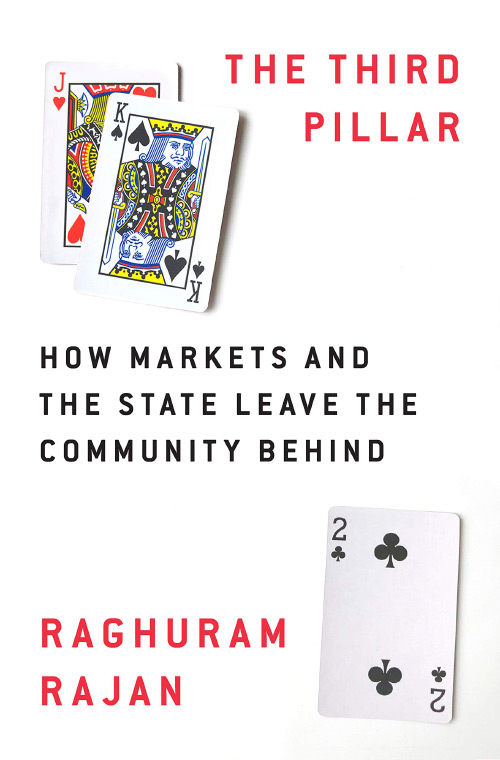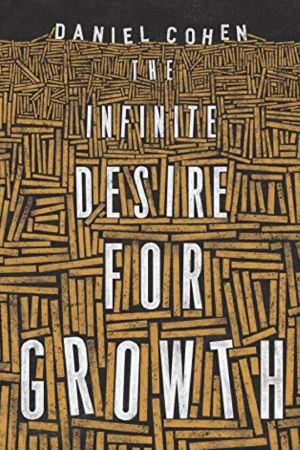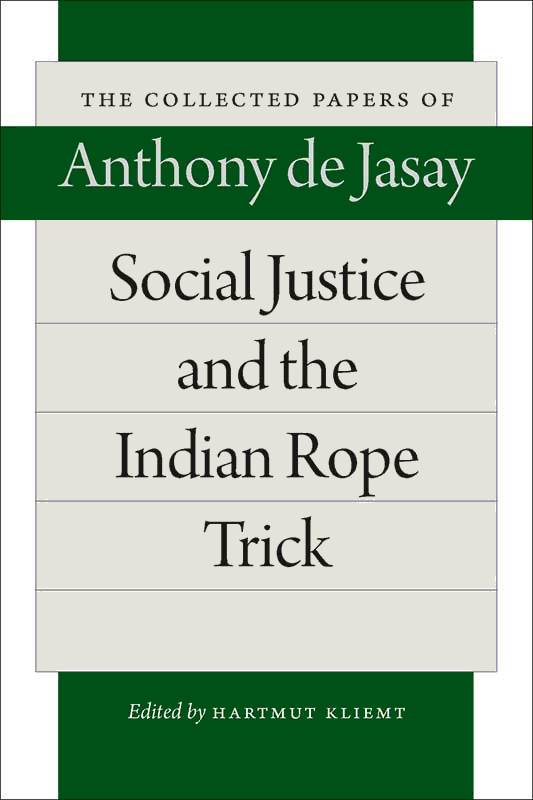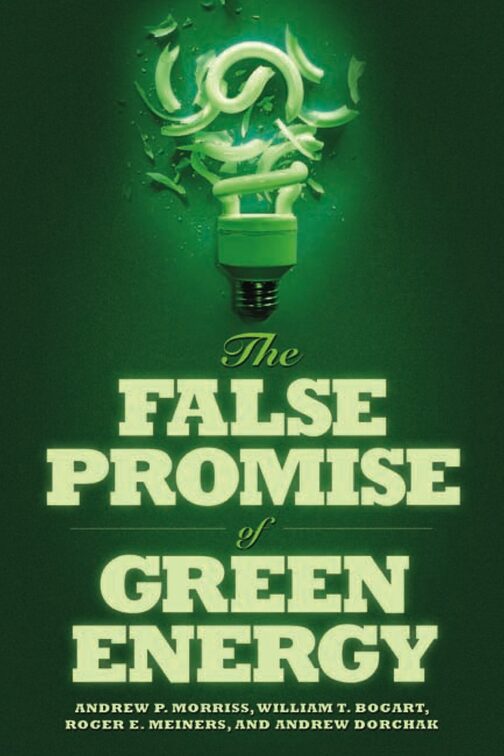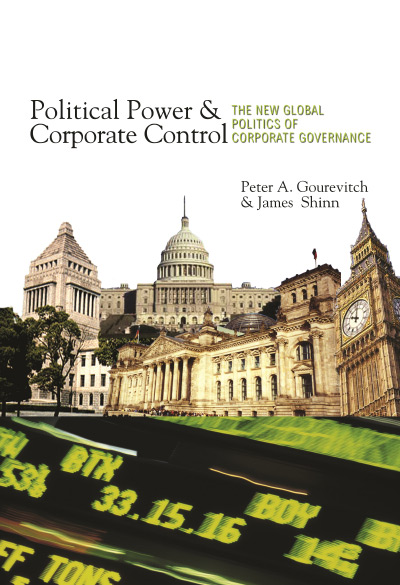Many economists think “government failure” derives from “market failure.” If markets are the default way of organizing human activity, problems arise when these processes “fail” to achieve “Pareto optimality” or gains from mutual cooperation. Government then arises to provide public goods, correct for information asymmetries, internalize externalities, regulate natural monopolies, and so on. But giving this power to the state has a dark side: if the state apparatus goes wrong, we have government failure. Nevertheless, the state is useful overall and in fact necessary, dark side or not.
Nobody else thinks that way, which may explain (along with the plaid sport coat) why economists often stand alone at cocktail parties. Defects in state action may be analogous to market failure. But it is important to recognize that government failures are prior to market failure. Further, the problems are not the consequence of hiring “bad” people but are instead systematic problems in the way government works. As Adam Smith put it, “It is the system of government, the situation in which [people] are placed, that I mean to censure, not the character of those who have acted in it. They acted as their situation naturally directed, and they who have clamoured the loudest against them would probably not have acted better themselves” (The Wealth of Nations [1776], book IV, chap. 7, para. 193). Smith was talking about the employees of the East India Company in this passage. But the insight is a general one: the failure of a system of organization often arises from the incentives, the logic of action, or the inconsistencies inherent in that system. The people who work in that system probably act in much the same way that other people would act if they found themselves in that system.
The “public choice” tradition of scholarship, operating along the hedge between politics and economics, has recognized that government failure is a primitive, not a derivative, feature of attempts to organize groups of people in a society. The results of this body of scholarship might be summarized in terms of “problems” of government:
Aggregation—the Arrow Problem Collective Action—the Olson Problem Delegation and Agency—the Niskanen/McNollgast Problem Information—the Hayek Problem Institutions—the North/Ostrom Problem Limitation—the Buchanan Problem Rent Seeking—the Tullock Problem
This is an enormous body of scholarship, some of it very influential (there are five Nobel Prize winners on that list) in the study of law and government. The reason that public choice is important in this context is that it examines government—or, as early versions of the approach had it, “nonmarket institutions”—as a legitimate object of study for its own performance rather than as a derivative of or reaction to market processes.
Peter Schuck’s book Why Government Fails so Often is in many ways commendable. In my opinion, he makes too few direct connections to the corpus of publicchoice scholarship (as far as I can tell), but the outline of “government failure” he uses gives us a book that is both highly readable and intellectually important.
The breadth of the book is impressive, and I can do no more here than offer a terse digest of the argument. Schuck begins with the empirical fact that many people (more in the United States than elsewhere) think government programs don’t work very well. He offers several explanation, including one we sometimes overlook: we ask government to do things that can’t be done, such as eliminate risk and provide benefits at zero cost. One can’t really blame the state for failing to do the impossible.
But then Schuck turns to his main claim: the U.S. “federal government does in fact perform poorly in a vast range of domestic programs” (p. 4). His criteria are empirical rather than normative: Given the goals of the program and its cost, is the government able to achieve anything close to the goal for anything close to a cost that can be justified by the benefits of the program? The answer is not just “no”; Schuck claims the answer is “almost never.”
Schuck is no anarchist; he is firmly in the camp of analysts who believe that the state has core functions that cannot be handled in any other kind of organization. The problem is that even in these core functions many government programs are not “cost effective.” Schuck bends over backward to grant claims about moral imperatives and about differing perceptions of the normative importance of providing particular programs. The problem is that even in the core functions that (almost) all of us would grant are state territory, few programs satisfy even the most generous cost-effectiveness standards.We spend too much for too little benefit, and too many of the resources are diverted or wasted.
Schuck sees four costs in immanent government failure. The first is wasting resources that have a social opportunity cost. It may be hard to measure the costs of what Bastiat called “the unseen,” but the costs are real. Second, Americans who depend, perhaps increasingly, on government programs suffer from both the economic inefficiency and the simple human indignities of having to deal with the bureaucratic labyrinth. Third is the cost of future economic growth as regulations and restrictions damp down innovation and prosperity. Fourth—because Schuck is not an anarchist—state programs’ manifold failures threaten the legitimacy of government as a tool for addressing social problems.
The reason this kind of objective cost analysis matters is that most people who favor state action actually care about the population being served (or not served, as the case may be). If the budget is larded up with pork and debt service, then programs that benefit the poor will be starved of resources. Schuck’s thesis is not that the state is inherently bad or hires bad people, but rather that the state often tends toward inefficiency, waste, and a sequence of diversionary reforms. Thus, public dissatisfaction with government programs is fully justified because government programs don’t perform very well.
One of the most provocative parts of the book is the section where Schuck makes a very strong—and perhaps controversial—claim for the primacy of cost–benefit analysis (pp. 51–63). The alternative is to see government programs as moral imperatives: “There is a problem.We must do something. X is something. Therefore, we must do X. X was a success, because we did something when there was a problem.”
Schuck’s cost–benefit approach poses two questions: Why would anyone think X addresses the problem in the first place? And how would we know if X fixed the problem? The political logic of “we must do something” armors the program against evaluation or attempts to measure whether it succeeded.
Schuck makes fourteen general claims about cost–benefit analysis; I have space to discuss just two of them. First, number 8: “Ending a failed policy is a kind of policy success” (p. 59). Of course, a program creates beneficiaries who will suffer when the program is ended, and cost savings are spread out over millions of taxpayers. Schuck is arguing for a language of politics where we give politicians credit for refusing to do the wrong thing. That may mean the right thing is to end a wasteful program.
The other claim I thought especially insightful is number 13: “Policy assessments must take most of the existing social and institutional context as given” (p. 62). This point is so obvious that it completely escapes policy makers, either because they find it useful to ignore or because they really think they live in an alternate reality. Sports stadiums will revitalize downtowns, having enormous multiplier effects. Enormous incentives for “development” will pay for themselves in increased taxes after a downtown area is completely transformed overnight. And health-care reforms will more than pay for themselves, sharply reducing cost while increasing access and improving the quality of care. And let’s make all the roads run downhill in both directions while we’re at it.
It may not be obvious why this point is so important, but those who understand forecasting recognize that it would be a game changer if agencies were obliged to take cognizance of it. For long-term forecasts, small changes in assumptions in the “out years” (meaning, “after the next election”) can dramatically affect the cost effectiveness of the program being advocated. It is common to assume that taxes will be repealed, deficits will disappear, and unemployment will remain lower than 6 percent forever. The last example was actually the basis for the Congressional Budget Office [CBO] forecast of the economy in 2012. Forever. Nice.
But we can’t blame the agencies for using faulty data in this case. It is Congress that requires that agencies make forecasts of cost and benefits, but then it is Congress that fills in the crucial assumptions that determine the outcome of the cost–benefit analysis. The CBO is obliged to accept and embody in its forecasts the assumptions that are written into the law that the CBO is supposed to be evaluating. If we assume that gross domestic product will grow at 4 percent in real terms, unemployment will fall to 6 percent and stay there, and productivity will grow at 3 percent annually, the “results” of our cost-efficiency analysis will be a fantasy, serving nothing but Congress’s desire to bribe taxpayers with their own money.
This brings us around to voters. If agencies are forced to use rules and assumptions that disguise costs or exaggerate benefits, then why not blame Congress? Why don’t voters demand better representation?
Schuck’s answer is right but depressing. Congress makes those rules, too. We don’t get to vote for “Congress” as an institution. We get to vote for “our” member of Congress, who runs in a district designed to ensure continued reelection, in a campaign finance system designed to thwart competition, and in an electoral system that raises the costs of seeking office in the first place. In his discussion of the Voting Rights Act of 1965 (pp. 345–50), Schuck grants that the suppression of minorities’ rights to vote or to seek office required federal action as a remedy. But a consequence, perhaps unintended at first but now a part of the electoral landscape, was the enshrinement of strategically drawn single-member districts that make substantive minority representation much more likely. Of course, if the state requires that black voters be gathered into a single district, the surrounding three or four districts become less diverse and (in recent American politics) more Republican. This isn’t the only cause of polarization—the Senate is venomously polarized, and states aren’t gerrymandered—but it is an example of the way that a program with a plausible and even laudable purpose can be changed over time to create and preserve a catastrophic failure of government action.
One churlish quibble, which must also serve as an excuse: Schuck does something that is inexcusable for a book of such immense scholarship and broad appeal. The background work in a variety of literatures that he synthesizes is enormous. But then he makes it hard for the reader to find any of this work efficiently. There are two ways, and (unless the book is fully electronic) only two correct ways, of organizing references. The first is to have footnotes at the bottom of the page providing references for sources cited in the text, with a list of works cited at the end of the book, then to include an index of topics and important names included in the book. This means that the footnotes aren’t too long and that the reader can use the index to find a topic, use the footnotes on that same page to find the references, and then look up the references.
The second is to use endnotes, as Schuck does, and then to include an index in which a reader can look up a topic, find the place where it is discussed in the text, and find the references in the endnotes. More importantly, a reader can discover what a particular scholar has written on topics referenced in the book.
Schuck uses endnotes and then does not include the 1,200 endnotes in the index. Worse, there is no “Works Cited” list. The reader cannot find an author or topic without reading all of the endnotes. I understand that Schuck, as a law professor, judges his scholarship by his endnotes. But it’s not the size of the list, but how you help the reader use it that should matter. This is a querulous point, of course. The only reason I raise it is that so much interesting and useful material is presented here but then is placed behind a paywall of deadweight inconvenience.
Taking stock of the book as a whole, I find that the end is a bit of a false note. Schuck goes to considerable length in the final chapters to argue that “big government” is here to stay. But he also argues that the “relationship between government’s growing ambition and its endemic failure is rooted in an inescapable, structural condition: officials’ meager tools and limited understanding of the opaque, complex social world they aim to manipulate” (p. 412). Schuck is a libertarian in denial, trapped in a worldview that his own analysis should help him escape. Or perhaps I just underestimate the power of the Dark Side.
| Other Independent Review articles by Michael C. Munger | ||
| Fall 2024 | Tax Turmoil: A Dia Fenner Economic Thriller | |
| Fall 2024 | Retrieving Liberalism from Rationalist Constructivism, Volume I; Retrieving Liberalism from Rationalist Constructivism, Volume II | |
| Fall 2024 | The Dispersion of Power: A Critical Realist Theory of Democracy | |
| [View All (83)] | ||




